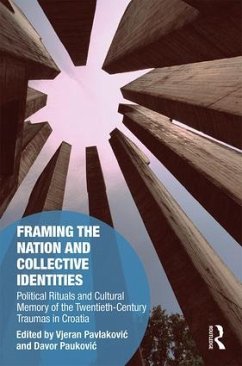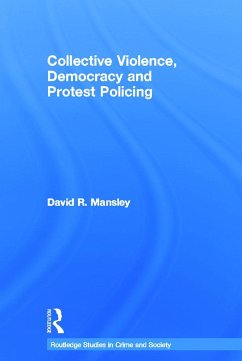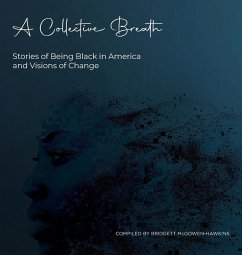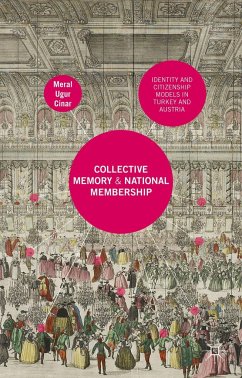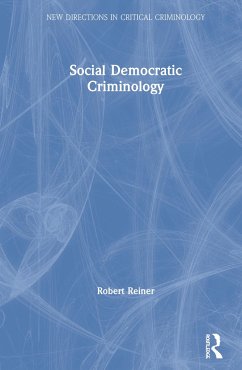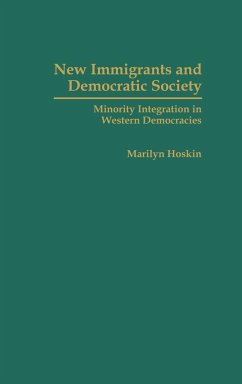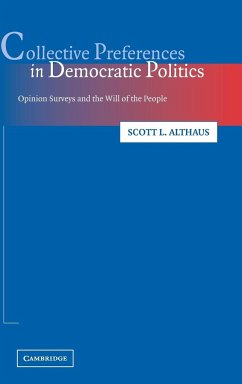
Collective Preferences in Democratic Politics

PAYBACK Punkte
36 °P sammeln!
Since so few people appear knowledgeable about public affairs, one might question whether collective policy preferences revealed in opinion surveys accurately convey the distribution of voices and interests in a society. This study, the first comprehensive treatment of the relationship between knowledge, representation, and political equality in opinion surveys, suggests some surprising answers. Knowledge does matter, and the way it is distributed in society can cause collective preferences to reflect disproportionately the opinions of some groups more than others. Sometimes collective prefere...
Since so few people appear knowledgeable about public affairs, one might question whether collective policy preferences revealed in opinion surveys accurately convey the distribution of voices and interests in a society. This study, the first comprehensive treatment of the relationship between knowledge, representation, and political equality in opinion surveys, suggests some surprising answers. Knowledge does matter, and the way it is distributed in society can cause collective preferences to reflect disproportionately the opinions of some groups more than others. Sometimes collective preferences seem to represent something like the will of the people, but frequently they do not. Sometimes they rigidly enforce political equality in the expression of political viewpoints, but often they do not. The primary culprit is not any inherent shortcoming in the methods of survey research. Rather, it is the limited degree of knowledge held by ordinary citizens about public affairs. Accounting for these factors can help better appreciate thepossibilities for using opinion polls to represent the people's voice.





